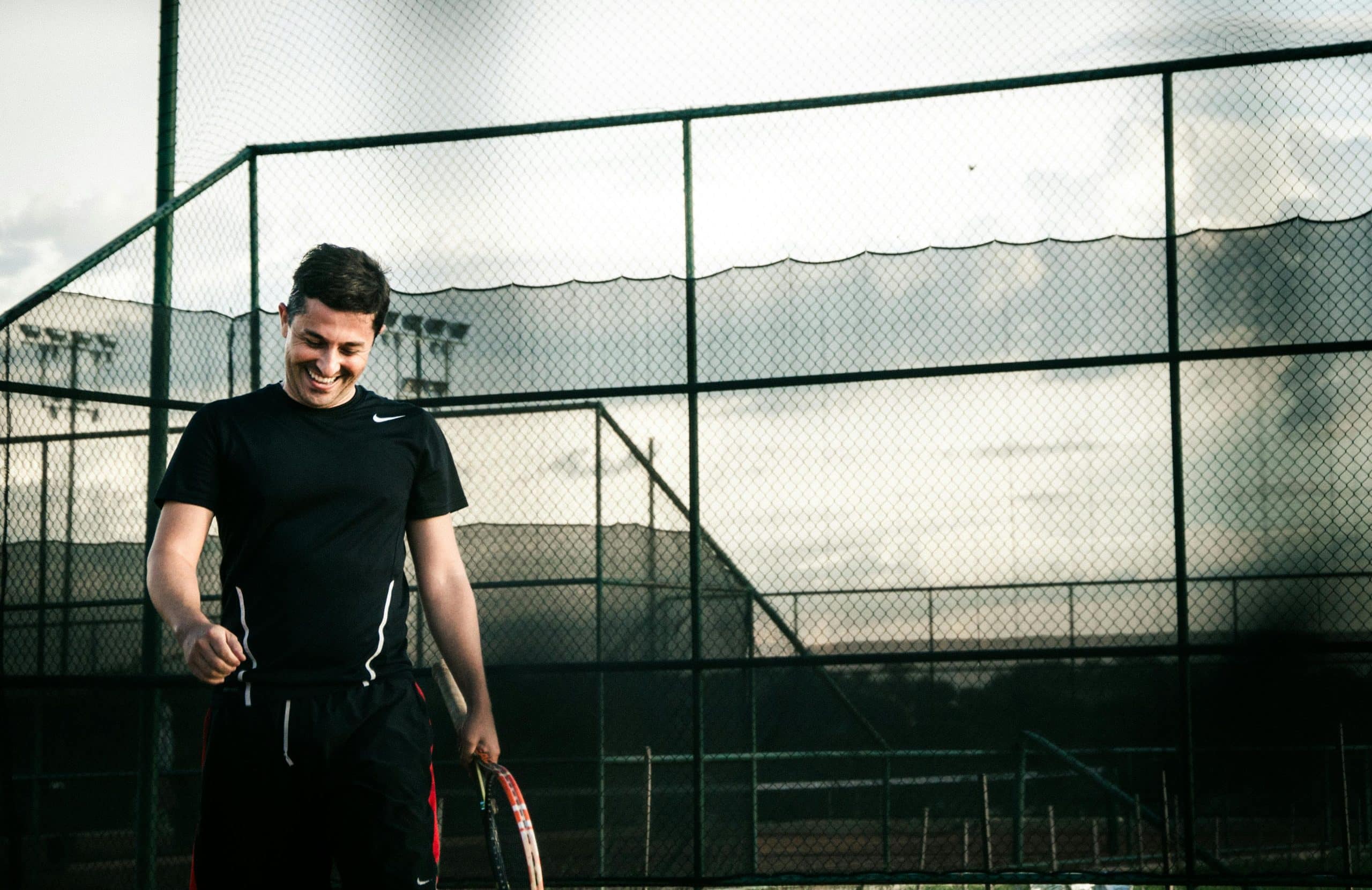As tennis players, reaction time is an essential aspect that can significantly impact your performance in the game. The ability to swiftly respond to a fast-approaching ball can be the difference between a winning and losing shot. However, improving reaction time is not just about physical training and practice; it also involves cognitive skills enhancement. In this article, we are going to explore how cognitive training tools can enhance your reaction time and overall skills performance.
Cognitive Training: A Game-Changer for Athletes
Cognitive training is an approach that aims at sharpening mental skills, with a specific focus on areas such as attention, memory, and problem-solving. These cognitive abilities have a direct impact on the performance of athletes, particularly in sports like tennis where split-second decisions can change the course of the game.
Lire également : How to Design an Off-Season Strength Program for Professional Soccer Players?
For tennis players, cognitive training exercises focus on boosting visual and spatial awareness, enhancing decision-making skills, and improving concentration levels. A tennis match is a fast-paced game where players need to track the ball’s movement, anticipate the opponent’s actions, and make quick decisions. By integrating cognitive training into their regular practice, tennis players can significantly boost their reaction time and overall game performance.
The Role of Cognitive Training Tools in Reaction Time Improvement
Cognitive training tools are innovative platforms that use neuroscience-based games and exercises to improve cognitive abilities. For tennis players, these tools can be of tremendous help in enhancing reaction time. Such platforms offer a variety of exercises tailored specifically for athletes, focusing on skills such as anticipation, focus, and quick decision-making.
Dans le meme genre : What Are the Benefits of Yoga for Stress Reduction in Elite Athletes?
For instance, a cognitive training tool might include a game where players have to track and hit virtual tennis balls that appear randomly on the screen. This exercise can help you improve your ball tracking skills and reaction time under pressure. Some platforms also offer multi-player modes that allow a group of tennis players to train together, fostering a competitive environment that can further enhance performance.
Cognitive Training and Physical Skills Development: The Inseparable Twins
Cognitive skills and physical abilities go hand in hand in sports performance. As a tennis player, you can’t rely solely on your physical prowess to win a game; you must also have sharp cognitive skills. Cognitive training tools help to bridge the gap between mental and physical skills, creating a synergy that can significantly boost your performance on the court.
For instance, cognitive training can enhance your ability to control the ball since it improves focus and spatial awareness. You can anticipate the ball’s trajectory better and position yourself appropriately for the shot. This improved ball control can significantly reduce your reaction time, giving you an edge over your opponents.
Group Training and Its Impact on Cognitive Skills Enhancement
Group training is a critical aspect of any team sport, and tennis is no exception. Cognitive training tools offer the opportunity for group training, which can be highly beneficial for cognitive skills enhancement.
In a group setting, players can compete against each other in cognitive games and exercises, creating a competitive environment that can further stimulate cognitive abilities. Moreover, it can foster a sense of camaraderie among the players, which can boost motivation and morale, enhancing the overall training experience.
Additionally, group training can provide an opportunity for peer learning. Players can observe and learn from each other’s strategies and tactics during the cognitive games, thereby enhancing their own cognitive abilities and reaction time.
The Scholar’s Take on Cognitive Training and Reaction Time
The benefits of cognitive training tools for improving reaction time in tennis players are not just theoretical. Numerous scientific studies and sports scholars support these claims.
Research demonstrates that cognitive training can improve athletes’ reaction time, decision-making abilities, and concentration levels. Some studies have shown significant improvements in reaction time following cognitive training intervention in tennis players.
In conclusion, cognitive training tools can significantly boost reaction time and overall performance in tennis players. By enhancing cognitive abilities, these platforms not only improve the players’ game skills but also contribute to their overall cognitive health. Whether you are a novice or a professional tennis player, integrating cognitive training into your practice routine can go a long way in enhancing your performance on the court.
Integrating Virtual Reality into Cognitive Training Programs
In the modern world, where technology is advancing at a lightning pace, virtual reality (VR) has found its place in cognitive training programs. These sophisticated systems aim to create immersive environments that can mimic real-world situations, therefore providing an excellent platform to sharpen cognitive skills and improve reaction times.
For tennis players, VR cognitive training can be a game-changer. The virtual environment presents them with realistic scenarios such as a fast-approaching ball or unpredictable opponent moves that they have to respond to instantly. This kind of training can significantly enhance their inhibitory control, a cognitive function that inhibits impulsive responses and helps make quick, accurate decisions.
A tennis training program that incorporates VR cognitive training could include exercises such as tracking and hitting virtual tennis balls, simulating real match scenarios, or even playing against virtual opponents. All these activities aim to push the players’ cognitive boundaries and improve their reaction time group scores.
Moreover, VR cognitive training can also improve long-term motor skills. By repeatedly practicing in a virtual environment, players can develop muscle memory for specific shots or moves, which can significantly enhance their physical performance on the court.
Google Scholar’s Perspective on Cognitive Training in Tennis
Turning to Google Scholar, a rich source of academic studies and scholarly articles, we find a wealth of evidence backing the effectiveness of cognitive training in improving reaction times and enhancing performance in tennis players.
A broad range of research studies suggest that cognitive training interventions can lead to measurable improvements in reaction times. For instance, one study indicated a significant reduction in reaction time post intervention with a cognitive training program.
Moreover, studies have also explored the impact of cognitive training on decision-making abilities. A faster processing speed, a direct result of cognitive training, enables athletes to make efficient decisions under pressure. This ability is crucial during a tennis match where every split-second decision can alter the outcome of the game.
From the perspective of Google Scholar, cognitive training, whether through traditional methods or advanced tools like VR, is a promising way to enhance reaction times and overall performance in tennis players.
Conclusion
In the dynamic and fast-paced game of tennis, reaction time plays a critical role in determining the outcome of a match. Cognitive training tools offer a promising solution to improve this crucial aspect. By specifically targeting cognitive skills such as inhibitory control, attention, and decision making, these tools can significantly reduce reaction times and enhance overall performance.
Incorporating advanced technology like virtual reality into the training program can further augment the benefits of cognitive training, providing a realistic and immersive platform for players to hone their skills. In addition, the scholarly evidence available on platforms like Google Scholar substantiates the efficacy of cognitive training interventions in improving reaction times and decision-making abilities.
Whether you are a novice trying to learn the ropes or a professional aiming to refine your skills, integrating cognitive training into your tennis training routine can be a game-changer. It not only improves your performance on the court but also contributes to your cognitive health in the long term.





